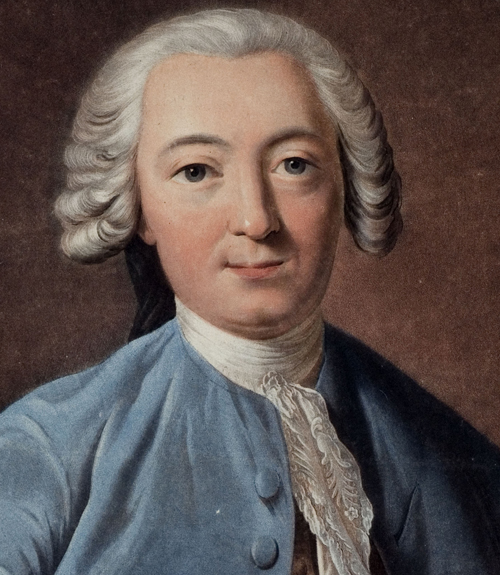
Your complimentary articles
You’ve read one of your four complimentary articles for this month.
You can read four articles free per month. To have complete access to the thousands of philosophy articles on this site, please
Philosophical Haiku
Helvétius (1715-1771)
by Terence Green
All born to reason
Passion incites inquiry
Virtue through pleasure

Helvetius by Pierre Michel Alix
Claude-Adrien Helvétius was born into a family of physicians – his father was doctor to the Queen of France – but at the age of twenty-three, canny Claude opted to pursue a different avenue and took up tax-collecting instead. A smart move, as this highly remunerative work allowed him to live the high life without actually working. He was fond of literature and philosophy, and soon began to hob-nob with the pre-revolutionary literary and intellectual elite of Paris.
In 1758, Helvétius published his most famous, and scandalous, work, De l’esprit (On the Mind). Here he argued that pleasure is the highest good, and that we’re all born with the same intellectual potential – a most democratic idea, which implied that it was only luck that separated the successful from the miserably poor. Our intellectual development comes about as a result of the stimulation of our passions: in order to learn, quite literally, we need to be passionate about learning. And most importantly, tedious moralising will never make people good. Instead, virtuous behaviour should be rewarded – and here comes the real scandal – even with sexual gratification!
As you can imagine, the book caused a furore among the guardians of the public morals (including aristocracy and royalty), who deemed it a threat to public health and safety. It was condemned by both the church and the state as yet another example of the danger of free inquiry.
The rather spineless Helvétius had no interest in being a martyr to the cause of Enlightenment – he just wanted to be famous – so he hastily penned a number of grovelling retractions. Unimpressed, and wanting to set an example to any other smarty-pants with dangerous ideas, the authorities had the book burned by the Paris hangman (because hanging a book just looks silly). On the upside, this blaze of publicity increased sales no end as people lined up to be scandalised and it was translated into the many languages of Europe.
© Terence Green 2025
Terence Green is a writer, historian, and lecturer who lives in Eastbourne, New Zealand.









